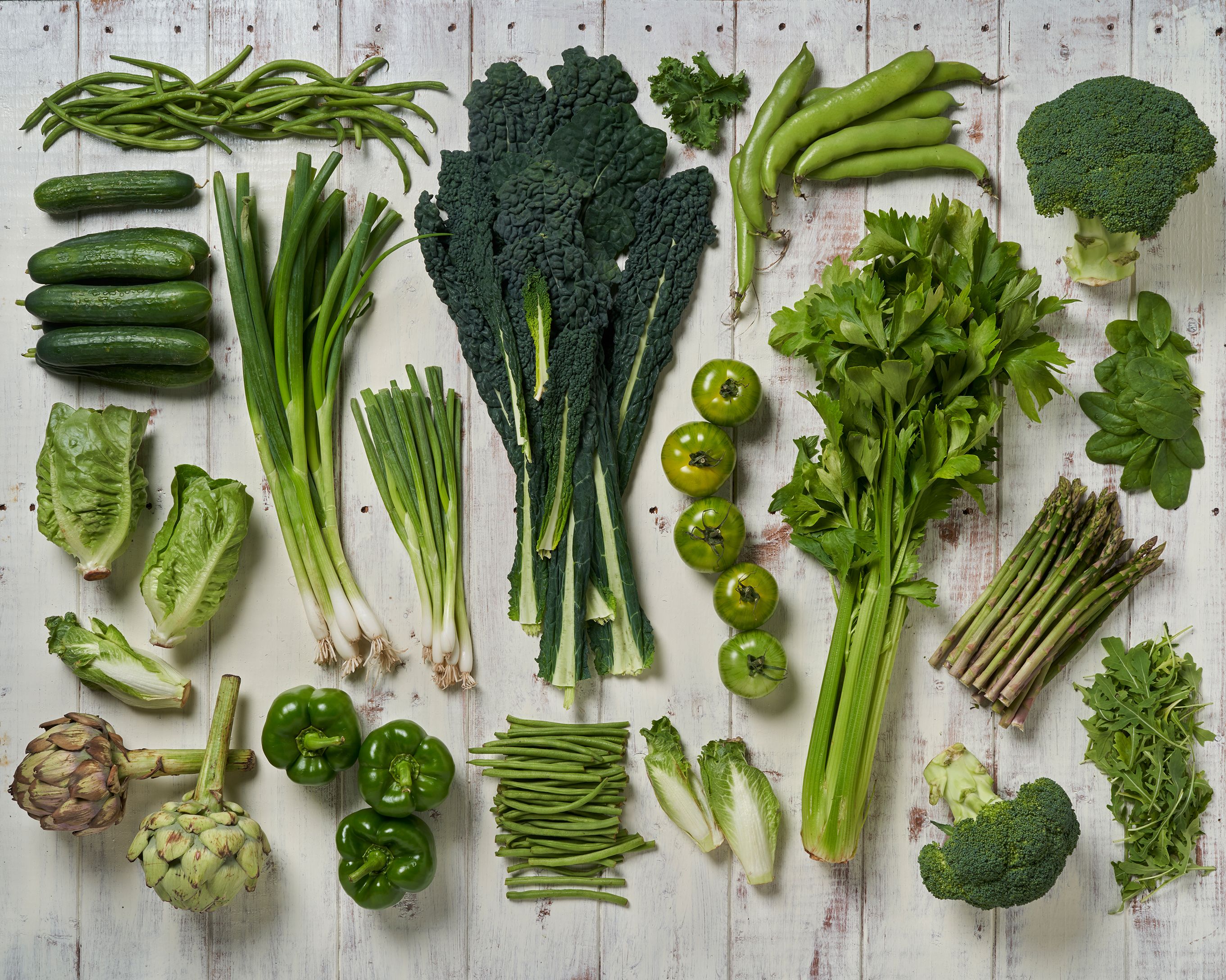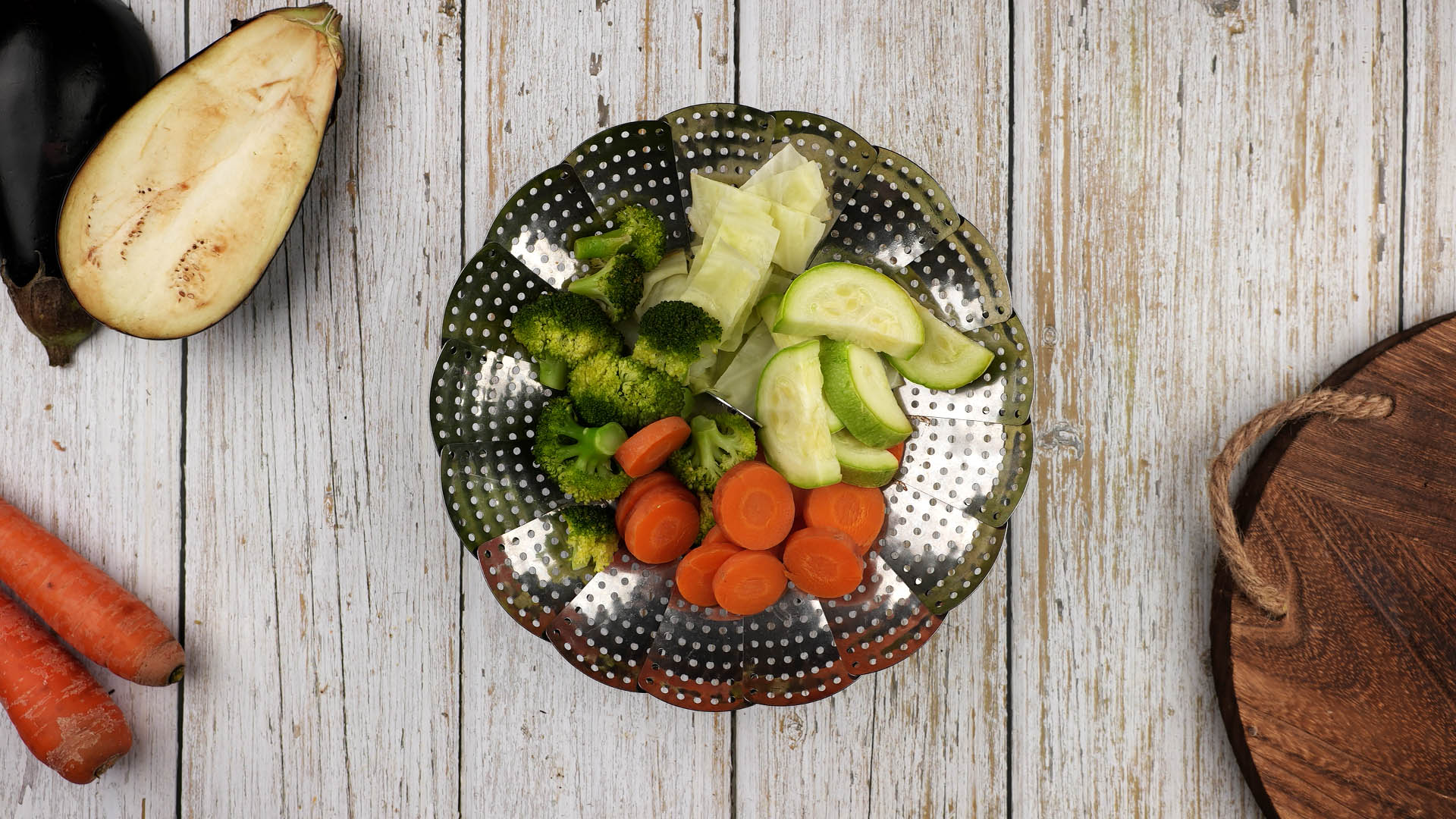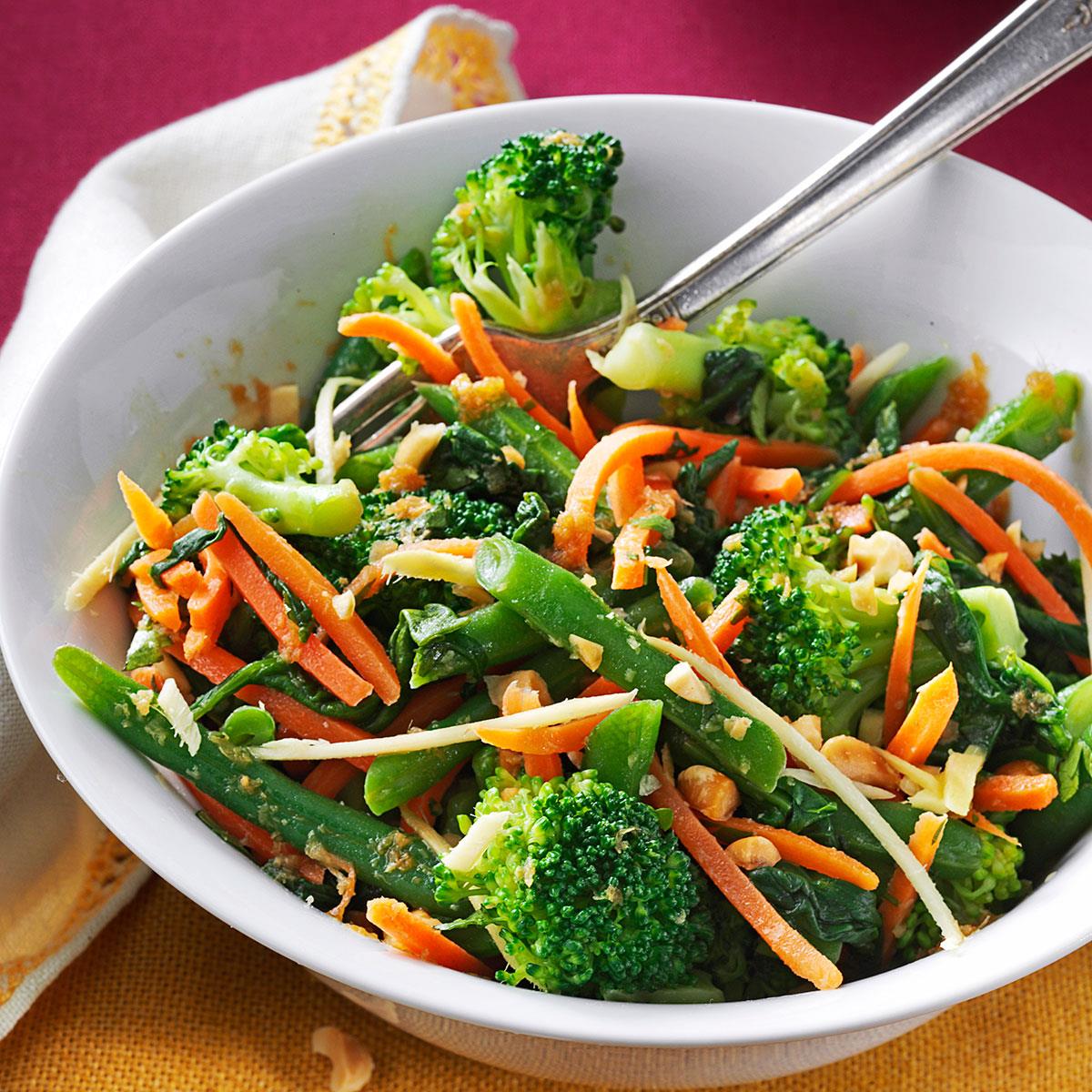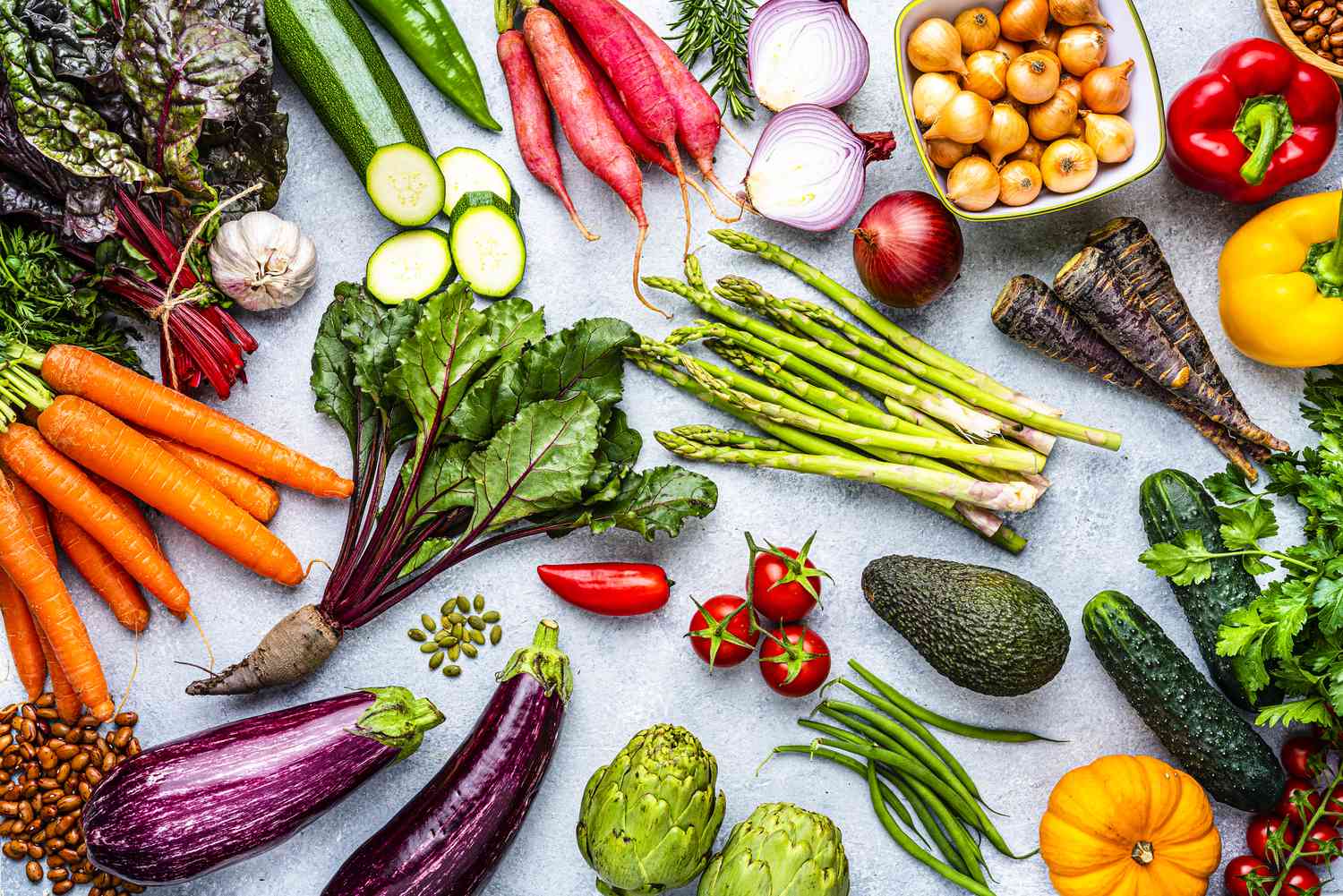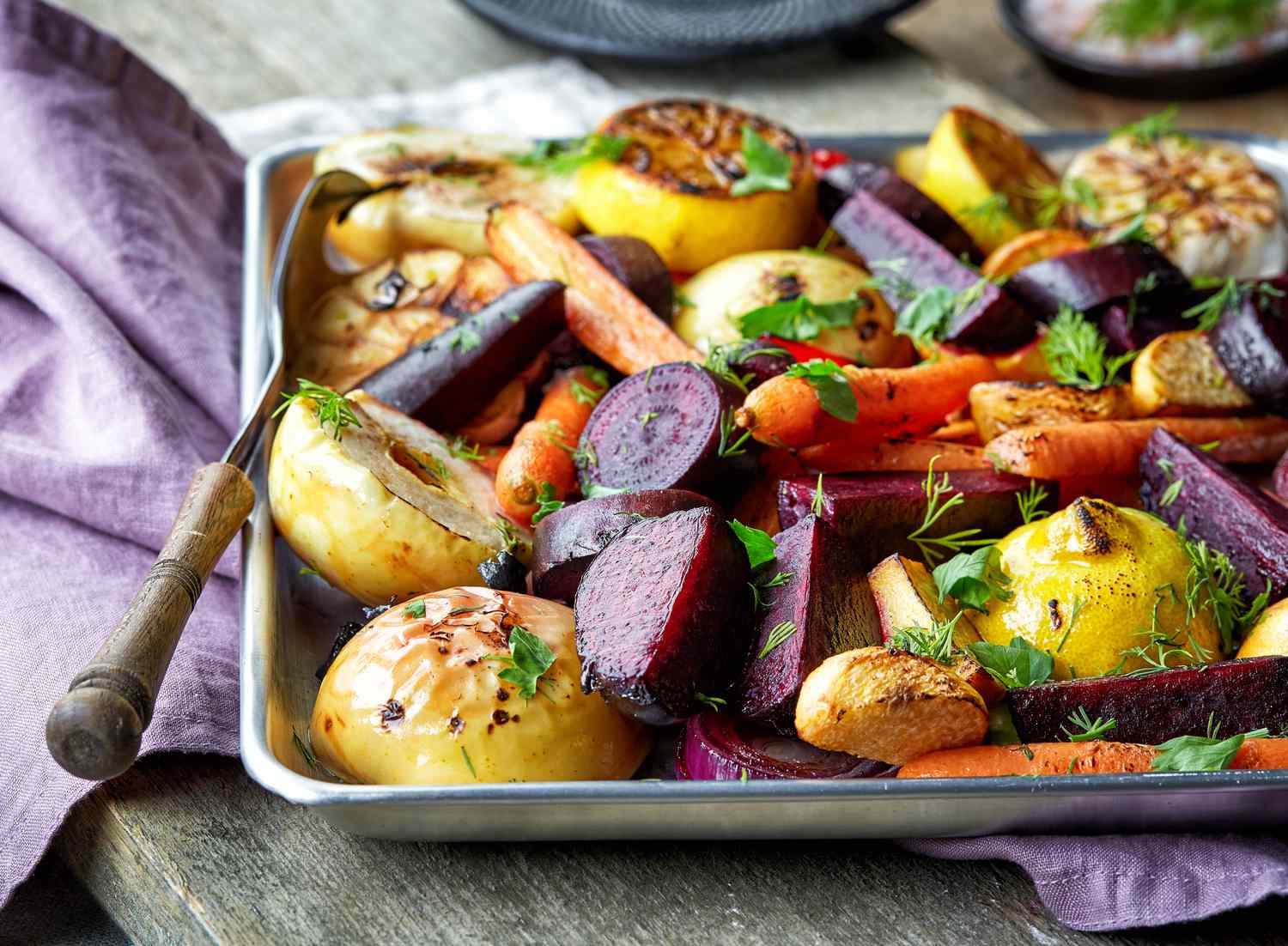Home>Gardening News and Trends>Latest News>What Is A Good Seasoning For Vegetables
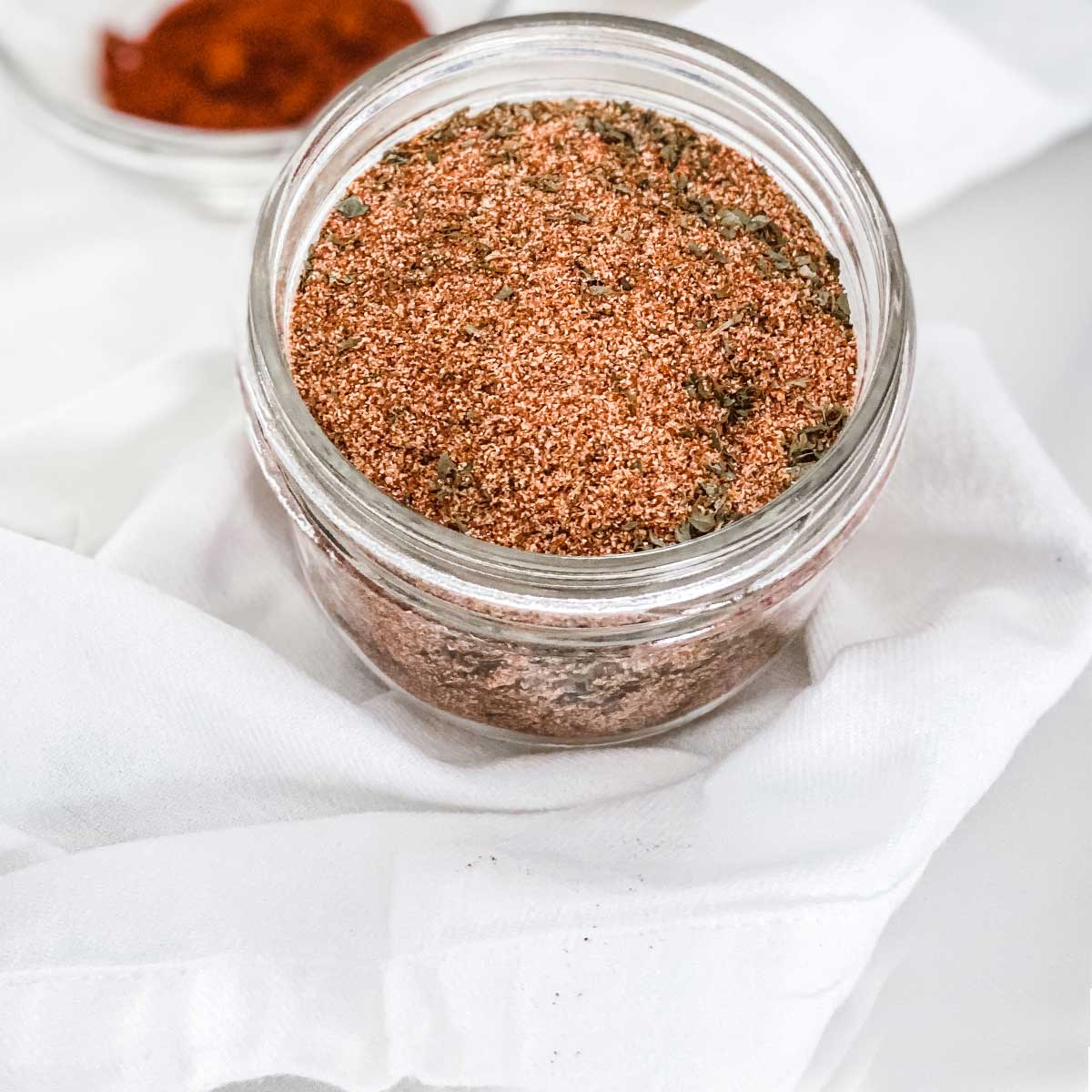

Latest News
What Is A Good Seasoning For Vegetables
Modified: January 22, 2024
Discover the latest news and tips on finding the perfect seasoning for vegetables. Elevate your culinary creations with the best flavors for your veggie dishes.
(Many of the links in this article redirect to a specific reviewed product. Your purchase of these products through affiliate links helps to generate commission for Chicagolandgardening.com, at no extra cost. Learn more)
Table of Contents
- Overview
- Benefits of Seasoning Vegetables
- Considerations for Choosing Vegetable Seasonings
- Common Herbs and Spices for Seasoning Vegetables
- Citrus Zest and Juice as Seasonings for Vegetables
- Healthy Oil Options for Seasoning Vegetables
- Homemade Vegetable Seasoning Blends
- Using Salt and Pepper to Enhance Vegetable Flavors
- Grilling and Roasting Techniques for Flavorful Seasoned Vegetables
- Conclusion
Overview
Seasoning vegetables is a culinary practice that involves adding various herbs, spices, and other flavoring ingredients to enhance the taste and aroma of vegetables. It is a simple yet effective way to transform bland and boring vegetables into delicious, flavorful dishes that can be enjoyed by everyone.
The art of vegetable seasoning dates back centuries, with cultures around the world using a wide range of herbs, spices, and other seasonings to elevate the taste of vegetables. Whether you are grilling, roasting, steaming, or sautéing your vegetables, choosing the right seasoning can make all the difference.
Not only does seasoning add flavor, but it also brings numerous health benefits to your vegetable dishes. Many herbs and spices used for seasoning vegetables are rich in antioxidants, vitamins, and minerals, which can support overall health and well-being. Furthermore, by using seasonings, you can reduce the need for unhealthy additives like excess salt, sugar, or sauces, making your vegetable dishes healthier and more natural.
When it comes to choosing vegetable seasonings, there are a few factors to consider. Firstly, consider the flavor profile of the vegetables you are working with. This will help you select seasonings that complement the natural flavors of the vegetables, rather than overpowering them.
Another consideration is the cooking method you will be using. Different seasonings work better with certain cooking techniques. For example, if you plan to grill or roast your vegetables, bold and robust seasonings like garlic, cumin, or paprika may work well. On the other hand, if you are stir-frying or steaming your vegetables, lighter and fresher seasonings like lemon juice, dill, or basil may be more suitable.
With countless herbs, spices, and seasonings to choose from, the world of vegetable seasoning is vast and versatile. From classic combinations like garlic and rosemary to more adventurous pairings like cumin and coriander, the possibilities are endless. And while store-bought seasoning blends can be convenient, making your own blends allows you to customize the flavors to suit your preferences.
So, whether you are a seasoned chef or a home cook looking to add some excitement to your vegetable dishes, mastering the art of vegetable seasoning is essential. By choosing the right seasonings and techniques, you can turn ordinary vegetables into extraordinary culinary delights that will leave your taste buds begging for more.
Benefits of Seasoning Vegetables
Seasoning vegetables goes beyond simply adding flavor; it brings a multitude of benefits to your dishes. Here are some key advantages of properly seasoning your vegetables:
Enhanced Flavor:
The primary benefit of seasoning vegetables is the enhanced flavor it brings. By choosing the right herbs, spices, and seasonings, you can amplify the natural flavors of the vegetables, making them more enjoyable to eat. Seasonings add depth, complexity, and a burst of taste to even the simplest of vegetable preparations.
Increased Nutritional Value:
Many herbs and spices used for seasoning vegetables are packed with essential nutrients. By incorporating these seasonings into your dishes, you can boost the nutritional value of your meals. For example, herbs like basil and oregano are rich in antioxidants, while spices like turmeric and cinnamon have anti-inflammatory properties.
Reduced Need for Unhealthy Additives:
When you season your vegetables well, you can reduce the need for unhealthy additives like excessive salt, sugar, or sauces. By using herbs, spices, and other natural seasonings, you can add flavor without relying on unhealthy ingredients, making your vegetable dishes healthier and more wholesome.
Variety and Versatility:
Seasoning vegetables opens up a world of variety and versatility in your cooking. With an array of herbs, spices, and seasonings to choose from, you can experiment with different flavor profiles and create unique combinations to suit your taste. This keeps your meals interesting and enjoyable, preventing culinary boredom.
Aromatic Experience:
Proper seasoning not only enhances the taste but also adds a delightful aroma to your vegetable dishes. The tantalizing smells of garlic, basil, or curry, for example, can entice your senses and make your meals even more appetizing. The aroma can elevate the overall dining experience and make your vegetable dishes more memorable.
Increased Consumption of Vegetables:
One of the biggest benefits of seasoning vegetables is that it encourages people to eat more of them. When vegetables are flavorful and delicious, they become more enticing and enjoyable to eat. This can make it easier to incorporate a variety of vegetables into your diet, ensuring you get the essential nutrients they provide.
In summary, seasoning vegetables not only improves the taste and aroma but also boosts the nutritional value and overall enjoyment of your dishes. With the right herbs, spices, and seasonings, you can transform ordinary vegetables into flavorful, nutritious creations that will delight your taste buds and keep you coming back for more.
Considerations for Choosing Vegetable Seasonings
When it comes to choosing the right seasonings for your vegetables, there are a few important factors to consider. Taking these considerations into account will help you enhance the natural flavors of your vegetables and create harmonious and delicious dishes. Here are some key considerations when selecting vegetable seasonings:
Flavor Profile:
Consider the flavor profile of the vegetables you are working with. Each vegetable has its own unique taste and characteristics, and you want to choose seasonings that complement and enhance those flavors. For example, earthy vegetables like mushrooms and beets pair well with herbs like thyme and rosemary, while lighter vegetables like zucchini and asparagus benefit from the freshness of lemon zest or basil.
Cooking Method:
Take into account the cooking method you will be using for your vegetables. Different seasonings work better with certain cooking techniques. For example, grilling or roasting vegetables benefits from bold and robust seasonings like garlic, cumin, or paprika, which can withstand the high heat and bring out deep flavors. On the other hand, if you are stir-frying or steaming your vegetables, lighter and fresher seasonings like soy sauce, ginger, or cilantro may be more suitable.
Balance and Harmony:
When seasoning your vegetables, aim for a delicate balance and harmony of flavors. Avoid overpowering the natural taste of the vegetables by using too much seasoning. Start with a small amount and gradually adjust to your taste preferences. The objective is to enhance and complement the vegetables, not drown them in excessive seasonings.
Seasonal and Local Ingredients:
Consider using seasonally and locally available ingredients in your vegetable seasonings. Fresh herbs and spices can provide a vibrant and authentic taste to your dishes. Additionally, supporting local farmers and using seasonal produce ensures the highest quality and freshness, resulting in more flavorful and nutritious vegetable dishes.
Personal Preferences:
Ultimately, your personal taste preferences play a crucial role in choosing vegetable seasonings. Experiment with different herbs, spices, and combinations to find the flavors you enjoy the most. Don’t be afraid to get creative and try new things. Discovering your own signature seasoning blends can make the process of cooking and eating vegetables even more enjoyable.
By considering these factors when choosing vegetable seasonings, you can elevate the taste and aroma of your dishes and create vegetable creations that are truly satisfying. Whether you prefer simple and classic combinations or bold and adventurous flavors, the right seasonings will enhance the natural beauty of the vegetables and make your culinary creations shine.
Common Herbs and Spices for Seasoning Vegetables
When it comes to seasoning vegetables, there is an abundance of herbs and spices to choose from. These aromatic ingredients bring depth, complexity, and a burst of flavor to vegetable dishes. Here is a list of some common herbs and spices that are frequently used to season vegetables:
Garlic:
Garlic is a versatile and essential seasoning for vegetables. Its pungent and savory flavor adds depth and richness to roasted, sautéed, or grilled vegetables. Use fresh garlic cloves or garlic powder for a more pronounced flavor.
Onion:
Onions provide a sweet and slightly tangy flavor to vegetable dishes. Whether used fresh, sautéed, or caramelized, onions can enhance the taste of a wide variety of vegetables, from stir-fries to soups and stews.
Herbs:
Herbs like rosemary, thyme, sage, parsley, and basil are popular choices for seasoning vegetables. These aromatic herbs add freshness, aroma, and a touch of earthiness to your dishes. Use them fresh or dried, depending on the intensity of flavor desired.
Cumin:
Cumin is a warm and earthy spice that pairs well with various vegetables. Its smoky and slightly nutty undertones can enhance the flavor of roasted root vegetables, cauliflower, and even grilled corn.
Paprika:
Paprika adds vibrant color and a mild, slightly sweet flavor to vegetable dishes. It comes in various forms: sweet, smoked, or hot. The choice of paprika can depend on the desired level of heat and smokiness in your dishes.
Cayenne Pepper:
Cayenne pepper brings a fiery kick and intense heat to vegetable dishes. Be mindful of the small amount needed to add a spicy flavor. Sprinkle a pinch of cayenne pepper in stir-fries or spice up oven-roasted chicory.
Black Pepper:
Black pepper is a classic and versatile seasoning for vegetables. Its strong and pungent flavor can enhance the taste of grilled or roasted vegetables. Use freshly ground black pepper for the best results.
Red Pepper Flakes:
Red pepper flakes are another way to add heat and a subtle smoky flavor to vegetable dishes. They work well in pasta dishes, stir-fries, and even roasted vegetables, providing a touch of spiciness.
Turmeric:
Turmeric adds a vibrant yellow color and a warm, earthy flavor to vegetable dishes. Known for its anti-inflammatory properties, turmeric complements the natural sweetness of vegetables like cauliflower, sweet potatoes, and carrots.
These are just a few examples of common herbs and spices used for seasoning vegetables. Experiment with different combinations and discover your own favorite mixtures. The key is to have fun, explore new flavors, and let your creativity shine when seasoning your vegetable dishes.
Citrus Zest and Juice as Seasonings for Vegetables
Citrus fruits, such as lemons, limes, and oranges, can add bright and refreshing flavors to vegetables when used in the form of zest and juice. The zesty citrus oils and tangy juices can elevate the taste of vegetables, bringing a burst of freshness to your dishes. Here’s how you can use citrus zest and juice as seasonings for vegetables:
Zest:
Citrus zest refers to the outermost colorful layer of the fruit’s peel. It is packed with aromatic oils that add intense flavor to vegetables. To zest a citrus fruit, use a grater or a zester to gently scrape off the outer layer of the peel, being careful to avoid the bitter white pith underneath.
The zest can be mixed directly into vegetables either during the cooking process or as a finishing touch before serving. It works particularly well with roasted, grilled, or sautéed vegetables, adding a zingy and fragrant note. Lemon zest pairs excellently with asparagus, while lime zest can brighten up grilled zucchini. Orange zest can add a lovely citrus aroma to roasted carrots.
Juice:
Citrus juice is another fantastic way to season vegetables. The tangy and acidic nature of citrus juice can balance out rich or earthy flavors while providing a burst of freshness. Squeeze the juice directly from the fruit onto the vegetables or use it in dressings, marinades, or sauces.
Marinating vegetables in citrus juice before cooking can help tenderize them while infusing them with flavor. Grilled or roasted vegetables can be drizzled with citrus juice to add a bright and acidic touch. Sautéed greens like spinach or kale can benefit from a squeeze of lemon juice to cut through any bitterness.
Experiment with different combinations of citrus zest and juice to find the flavors you enjoy the most. Additionally, you can mix citrus zest and juice with other seasonings like olive oil, herbs, or spices to create unique marinades or glazes for your vegetables.
It’s worth noting that different citrus fruits have slightly different flavors, so feel free to explore the versatility of lemons, limes, oranges, grapefruits, and even lesser-known varieties like Meyer lemons or blood oranges.
Using citrus zest and juice as seasonings not only enhances the taste of vegetables but also provides numerous health benefits. Citrus fruits are rich in vitamin C, antioxidants, and other essential nutrients, which can support overall well-being and strengthen the immune system.
So the next time you’re looking to add a vibrant and tangy twist to your vegetable dishes, reach for citrus zest and juice. These natural and refreshing seasonings will brighten up your meals and leave your taste buds craving for more.
Healthy Oil Options for Seasoning Vegetables
When it comes to seasoning vegetables, using the right type of oil can make a significant difference in both flavor and health. Oils not only add richness and depth to your vegetable dishes but also help to carry the flavors of other seasonings. Here are some healthy oil options that you can use to season your vegetables:
Olive Oil:
Olive oil is a popular choice for seasoning vegetables due to its rich flavor and health benefits. It adds a fruity and slightly peppery taste to vegetables, enhancing their natural flavors. Extra virgin olive oil (EVOO) is the highest quality and least processed form, making it the most flavorful. It’s best used in dressings, drizzling over grilled vegetables, or as a finishing touch to dishes.
Avocado Oil:
Avocado oil is known for its high smoke point, making it ideal for various cooking methods, including roasting and stir-frying. It has a mild and buttery flavor that complements vegetables without overpowering them. Avocado oil also contains heart-healthy monounsaturated fats and is rich in vitamin E.
Coconut Oil:
Coconut oil is a flavorful option for seasoning vegetables, especially when you desire a tropical twist. It adds a subtle sweetness and a hint of coconut flavor to dishes. Coconut oil solidifies at room temperature, so it’s often used for roasting or sautéing. Keep in mind that coconut oil is high in saturated fats, so moderation is key.
Grapeseed Oil:
Grapeseed oil is extracted from grape seeds and has a mild, nutty flavor. It has a high smoke point, making it suitable for various cooking methods, including grilling and stir-frying. Grapeseed oil is low in saturated fat and contains high levels of vitamin E and omega-6 fatty acids.
Sesame Oil:
Sesame oil is commonly used in Asian cuisine and adds a unique nutty and toasty flavor to dishes. It is typically used in small quantities as a finishing oil or in stir-fries. Toasted sesame oil has a more intense flavor and is best used sparingly to avoid overpowering the vegetables.
Vegetable Oil:
Vegetable oil is a widely available and affordable option for seasoning vegetables. It has a neutral flavor and a high smoke point, making it suitable for high-heat cooking methods like frying and roasting. Look for varieties labeled as “expeller-pressed” or “refined” for a healthier option.
When selecting oils for seasoning vegetables, opt for cold-pressed or unrefined options whenever possible. These oils undergo minimal processing, retaining more of their natural nutrients and flavors. Additionally, be mindful of the smoke point of each oil, as heating an oil beyond its smoke point can cause it to break down and release harmful compounds.
Remember that while oils can enhance the taste and texture of vegetables, they should be used in moderation due to their high calorie content. By choosing healthy oils and using them sensibly, you can elevate the flavors of your vegetable dishes while promoting overall well-being.
Homemade Vegetable Seasoning Blends
Creating your own homemade vegetable seasoning blends not only allows you to personalize the flavors but also ensures that you have full control over the ingredients. By combining a variety of herbs, spices, and seasonings, you can create unique flavor profiles that perfectly complement your vegetable dishes. Here are a few homemade vegetable seasoning blends to inspire your culinary creations:
Italian Herb Blend:
A classic blend that brings a taste of Italy to your vegetables. Mix together dried basil, oregano, thyme, rosemary, and a touch of garlic powder. This blend pairs well with tomatoes, zucchini, eggplant, and other Mediterranean vegetables. It can be used for roasting, grilling, or sautéing, adding an aromatic and herby flavor.
Taco Seasoning:
For a southwestern twist, create your own taco seasoning blend. Combine chili powder, cumin, paprika, garlic powder, onion powder, oregano, salt, and a pinch of cayenne pepper. This seasoning is perfect for adding a spicy and smoky kick to roasted vegetables, beans, and even tofu. Use it in tacos, quesadillas, or as a sprinkle over baked sweet potatoes.
Herbes de Provence:
This French-inspired blend adds an elegant and fragrant touch to your vegetable dishes. Combine dried thyme, rosemary, marjoram, savory, and lavender. This blend works magic in roasted potatoes, grilled asparagus, or sautéed green beans. The aromatic herbs bring a delicate yet flavorful taste that instantly transports you to the lavender fields of Provence.
Lemon Pepper Seasoning:
Lemon pepper seasoning is a versatile option that adds tangy and zesty flavors to vegetables. Combine lemon zest, black pepper, sea salt, garlic powder, and a hint of dried thyme. This blend works well with grilled or roasted vegetables, adding bright and citrusy notes. It can also be used on salads, steamed greens, or as a seasoning for fish or poultry.
Moroccan Spice Blend:
Bring the vibrant flavors of Moroccan cuisine to your vegetables with this aromatic blend. Combine ground cumin, coriander, paprika, turmeric, cinnamon, ginger, and a pinch of cayenne pepper. This seasoning blend adds warmth and complexity to roasted root vegetables, couscous dishes, or grilled bell peppers. The combination of spices creates a rich and exotic flavor that will transport your taste buds to the bustling souks of Morocco.
Asian-inspired Stir-Fry Seasoning:
Create your own blend for delicious Asian stir-fries. Combine soy sauce, sesame oil, ginger, garlic, and a touch of honey or brown sugar. This seasoning adds a savory and umami flavor to a variety of stir-fried vegetables, such as broccoli, bell peppers, snap peas, or bok choy. It can also be used as a marinade for tofu or tempeh.
Feel free to adjust these homemade seasoning blends to your taste preferences. Add more or less of certain ingredients, incorporate additional spices, or experiment with different combinations. The goal is to create unique flavor profiles that enhance the natural tastes of your favorite vegetables.
When making homemade seasoning blends, store them in airtight containers in a cool, dark place to preserve their flavors. Label the containers with the names and creation dates, so you can easily identify and use them before they lose their potency.
With homemade vegetable seasoning blends, you can elevate your vegetable dishes to new heights, adding your own personal touch and transforming them into culinary masterpieces.
Using Salt and Pepper to Enhance Vegetable Flavors
Salt and pepper might be simple seasonings, but they play a crucial role in enhancing the flavors of vegetables. These basic yet powerful ingredients can bring out the natural tastes and complexities of various vegetables, taking your dishes from ordinary to extraordinary. Here’s how you can use salt and pepper to elevate the flavors of your vegetables:
Salt:
Salt is a fundamental seasoning that helps to balance and enhance the flavors in dishes. When used properly, it doesn’t just make your food taste salty, but it amplifies the other flavors present. By drawing out moisture, salt can help to concentrate and intensify the taste of vegetables.
When seasoning vegetables with salt, start with a light sprinkle and gradually add more if needed. Taste as you go to avoid oversalting. Remember that different vegetables have varying levels of natural saltiness, so be mindful of the salt content in your other ingredients.
Sea salt or kosher salt are preferred choices for seasoning vegetables, as they have a clean flavor and dissolve easily. Avoid iodized table salt, as it can sometimes impart a metallic or chemical taste to your dishes.
Black Pepper:
Black pepper adds a subtle heat and complexity to vegetable dishes. The pungent and slightly spicy flavor of freshly ground black pepper can brighten and lift the taste of vegetables, especially when used as a finishing touch.
Whole peppercorns are the best option for optimal flavor. Grind them just before use to retain the aromatic oils. Sprinkle black pepper over grilled veggies, sautéed greens, or roasted root vegetables to add a warm and zesty kick.
Adjust the amount of black pepper according to your taste preferences. For a milder flavor, use less; for more robust heat, add a bit more. Black pepper pairs well with a wide range of vegetables, and its versatility makes it a staple in any kitchen.
Balancing Salt and Pepper:
Using the right balance of salt and pepper is essential for enhancing the flavors of vegetables. The goal is to create a harmonious blend that complements the natural tastes of the vegetables without overpowering them.
If you find that your vegetable dish tastes flat or lacks flavor, try adding a pinch of salt. Salt helps to bring out the nuances and complexity of the flavors. On the other hand, if your vegetables taste too salty or overpowering, a sprinkle of black pepper can help to cut through the saltiness and add a contrasting element.
Remember to season your vegetables throughout the cooking process, starting with a small amount and adjusting as necessary. It’s easier to add more seasoning later on rather than trying to fix an overly seasoned dish. Trust your taste buds and adjust the salt and pepper levels until you achieve the desired balance.
When used judiciously, salt and pepper can highlight the flavors of vegetables and elevate them to new heights. These simple and essential seasonings are a foundation for any well-seasoned vegetable dish and can help transform your cooking into a delightful culinary experience.
Grilling and Roasting Techniques for Flavorful Seasoned Vegetables
Grilling and roasting are cooking techniques that can bring out the natural sweetness, enhance the flavors, and add a depth of smokiness to vegetables. By properly seasoning and preparing your vegetables before grilling or roasting, you can create delicious and flavorful dishes that will tantalize your taste buds. Here are some techniques to make your grilled and roasted vegetables truly exceptional:
Preparation:
Before grilling or roasting, it is important to properly prepare your vegetables. Wash them thoroughly and pat them dry to prevent excessive moisture, which can hinder browning and caramelization. Cut the vegetables into consistent sizes to ensure even cooking.
Marinades and Seasoning:
Marinating your vegetables before grilling or roasting can infuse them with extra flavor and tenderness. Create a marinade using your choice of herbs, spices, oils, and acids like lemon juice or vinegar. Coat your vegetables thoroughly in the marinade and let them sit in the refrigerator for at least 30 minutes to allow the flavors to penetrate.
Alternatively, you can season your vegetables just before cooking. Sprinkle them generously with your preferred seasoning blend, ensuring even coverage on all sides. Opt for seasonings that can withstand high heat, such as garlic, cumin, paprika, or dried herbs, as they will create a delicious crust on the vegetables when grilled or roasted.
Grilling:
Grilling vegetables imparts a smoky flavor while creating delicious charred marks. Preheat your grill to medium-high heat and grease the grates to prevent sticking. Place the seasoned vegetables directly on the grill or use a grilling basket or skewers for smaller pieces. Cook the vegetables until they are tender and have distinctive grill marks, flipping them as needed for even cooking.
For optimal flavor, resist the temptation to constantly move the vegetables. Let them sit on the grill, undisturbed, to develop a caramelized exterior and tender interior. Be mindful of the varying cooking times for different vegetables and adjust accordingly to prevent overcooking.
Roasting:
Roasting vegetables in the oven allows for even cooking and intensifies their natural flavors. Preheat your oven to the appropriate temperature based on the vegetable(s) you are roasting. Toss the seasoned vegetables with a drizzle of oil to help with browning and prevent dryness.
Spread the vegetables out in a single layer on a baking sheet or in a roasting pan. This ensures proper airflow and even browning. Roast the vegetables until they are tender on the inside and have caramelized edges, giving them the perfect balance of texture and flavor.
Enhancements:
For additional flavor enhancements, consider adding complementary ingredients during the grilling or roasting process. Toss vegetables with a sprinkle of grated parmesan cheese, a drizzle of balsamic glaze, or a handful of toasted nuts or seeds, just before they finish cooking. These additions can elevate the taste and texture of the vegetables, adding extra depth and complexity.
By mastering the techniques of grilling and roasting, you can create beautifully charred and caramelized vegetables with enhanced flavors. The combination of proper seasoning, marinating, and attentive cooking will result in deliciously seasoned vegetables that are sure to impress.
Conclusion
Seasoning vegetables is an art that can transform ordinary dishes into extraordinary culinary creations. By using various herbs, spices, and seasonings, you can enhance the natural flavors of vegetables, making them more enticing and enjoyable. Whether grilling, roasting, sautéing, or steaming, the right combination of seasonings can elevate your vegetable dishes to new heights.
When choosing vegetable seasonings, consider the flavor profile of the vegetables themselves and the cooking method you will be using. This will help you select seasonings that complement and enhance the natural characteristics of the vegetables, rather than overpowering them. Experiment with different herbs, spices, and seasonings to discover your own personal preferences and create unique flavor profiles.
In addition to adding taste, seasoning vegetables brings numerous benefits. Many herbs and spices used for seasoning are rich in antioxidants, vitamins, and minerals, which can support overall health and well-being. Seasonings also reduce the need for unhealthy additives like excess salt or sugar, making your vegetable dishes healthier and more natural.
Alongside herbs and spices, don’t underestimate the power of simple salt and pepper. These basic seasonings can bring out the best in vegetables when used in balance, helping to intensify flavors and create a harmonious taste experience.
Grilling and roasting techniques can further enhance the flavors of seasoned vegetables. Proper preparation, marinating, and attentive cooking methods such as grilling or roasting can create beautifully charred, caramelized, and smoky vegetable dishes that are rich in taste and texture.
Don’t hesitate to get creative and experiment with your own homemade vegetable seasoning blends. By combining different herbs, spices, and seasonings, you can create unique flavor profiles that perfectly suit your taste preferences.
Overall, mastering the art of vegetable seasoning opens up a world of possibilities for creating delicious, wholesome, and visually appealing vegetable dishes. Embrace the versatility of seasonings, techniques, and personal preferences to unlock the full potential of your vegetable recipes. Enjoy the journey of exploring new flavors, textures, and combinations, and allow your creativity to shine as you make every vegetable dish a delightful and memorable experience.
